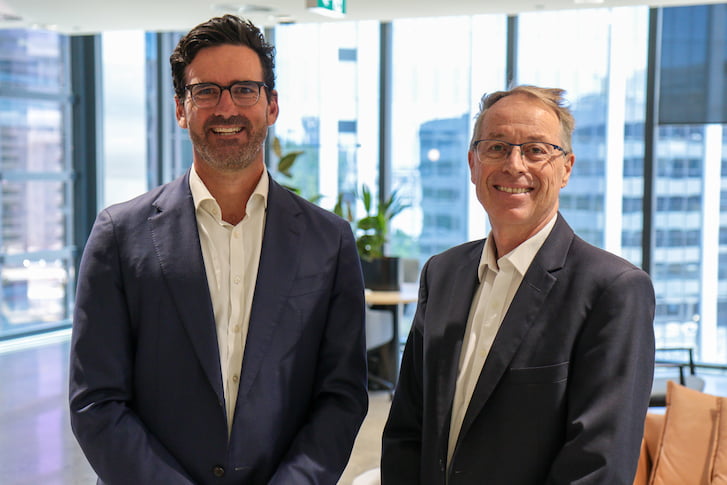A myriad of issues plaguing the transport industry were thrashed out at the CCIWA-Western Roads Federation freight and logistics conference last week, as the industry strives to strengthen its national voice and be recognised as an essential service.
Representatives from all states highlighted priority issues including lack of career paths, dwindling profits, being hamstrung by red tape and not having a serious voice in parliament.
Western Roads Federation Chairman Craig Smith Gander explains why training is important for the transport industry
WRF CEO Cam Dumesny said the robust discussions elevated the importance of the freight and logistics industry and the problems specific to WA.
“It’s a horizontal sector and as such it sneaks under the radar and that event just highlighted its importance to all levels of government and businesses from multiple sectors, which is what the aim was,” he said.
“We’re going through tough times as an industry. It’s a tough economy in WA, there are changing market dynamics, changing technology, ageing workforce so multiple factors are at play and the division is largely around how you sort that out and how you fix it.
“There is, however, common agreement that we’ve got a problem, the argument is largely around what you prioritise to solve those issues and the only way you can do that is to get everyone in the room and start that process.”
Dumesny said the discussions would help inform WRF’s submission to the Senate Inquiry into the transport industry.
Driver academy on government agenda
WA Transport Minister Rita Saffioti gave a rapid-fire 20-minute address to more than 200 conference goers, emphasising the State Government’s “record investment” in road and rail projects to improve freight movement and reduce congestion for commuters.
She said the investment totalled $8.2 billion across the State’s forward budget estimates.
“We see this as a huge opportunity to continue to invest across the network,” Saffioti said, adding that job creation was also a priority.
“We’re trying to get our projects on the ground as quickly as possible to get as many people employed as we can.”
The Minister also said the McGowan Government was keen to pursue a dedicated course in truck driver training as soon as possible, following recent meetings with the transport industry.
She foreshadowed future announcements on the details of a planned “driver academy” to train up truck drivers and help attract more young people into the industry.
“We think that is a huge opportunity for government and industry to work together,” she said.
Improved career paths
Western Roads Federation Chairman Craig Smith Gander said the organisation had met with Premier Mark McGowan and Transport Minister Rita Saffioti about the urgent need to improve training pathways and attract more people, including school leavers, to the industry.
He welcomed Saffioti’s commitment to push ahead with a driver academy as well as a dedicated driver training course, formulated with the help of Training Minister Sue Ellery.
Smith Gander also emphasised that the trucking industry needed to work harder on promoting itself to regulators and the broader community, that “we are pretty damn good at what we do”.
And to bring new people to the industry, it was important to access government money, such as the Federal Government’s surge funding for volunteering organisations like Surf Life Saving WA to upgrade skills.
“That is funded by the Federal Government and that’s money we should be accessing,” he said, adding that the Western Federation was applying for a grant to run a 12-week training program for 200 new job seekers in the industry.
CCIWA CEO Chris Rodwell said partnerships with peak industry organisations such as Western Roads Federation were important to the leadership role CCIWA played as a champion for business and free enterprise.
► CCIWA understands the changing needs of business. Find out about membership packages here.












